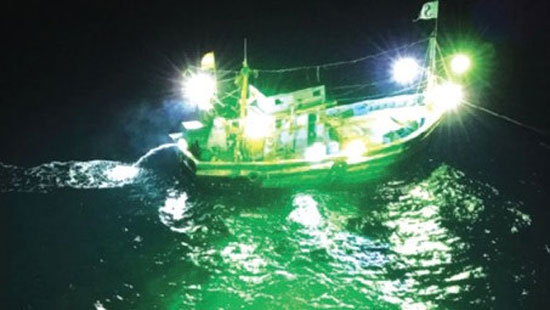Daijiworld Media Network - Panaji
Panaji, Jul 23: In a bid to tighten its grip on illegal fishing along the state’s 105-km coastline, the Goa government is gearing up to deploy high-tech drone surveillance. The move aims to tackle unauthorised fishing practices, particularly bull trawling — a method banned due to its ecological damage.
Fisheries Minister Nilkant Halarnkar told the Goa Legislative Assembly that drones equipped with high-resolution cameras and a flight range exceeding 20 km will soon be airborne to monitor fishing activities. “We’ve conducted two successful drone test flights. The technology is in place — we’re now awaiting financial clearance,” Halarnkar said.

He confirmed that the state has partnered with an agency that already operates similar surveillance systems in Maharashtra. Enforcement will be coordinated with the Coast Guard and coastal police. “These drones will act as a force multiplier. They’ll not just monitor — they’ll help identify and track illegal vessels in real time,” he noted.
Halarnkar’s announcement came in response to mounting pressure from legislators concerned about lax enforcement and the influence of illegal trawlers, including those from neighbouring states.
Curtorim MLA Aleixo Reginaldo Lourenco questioned how identification and interception would occur once drones spot illegal vessels. Halarnkar replied that high-quality imaging would make identification seamless. “We currently have two patrol boats, and more will be added as required,” he assured.
Backing the initiative, Chief Minister Pramod Sawant called the drone plan a “futuristic step” toward marine conservation. “We’ve already seized 17–18 boats involved in bull trawling. Offenders were fined and detained. Drone surveillance will only strengthen our enforcement.”
However, not everyone was convinced. Opposition leader Yuri Alemao pressed for clarity on follow-up action after drones detect violations. “Spotting is fine. But who actually chases down and catches these boats?” he asked, pointing to alleged inactivity of existing patrol vessels.
Lourenco raised concerns about a potential nexus between enforcement agencies and violators, alleging that boats are often left unchecked. Halarnkar firmly denied the claim, citing fines, seizures, and fish auctions as evidence of action taken.
Meanwhile, Goa Forward Party chief and Fatorda MLA Vijai Sardesai criticised the government’s failure to stop “outsider” trawlers, especially from Karnataka and Gujarat. “This is a clear-cut case of Goans being looted while the government turns a blind eye,” he said, describing the drone plan as an admission that Goa has lost control over its waters.
Despite political heat, the government maintains that drone deployment is a necessary upgrade to overcome gaps in manual patrolling. “It’s time we stop playing catch-up and bring technology into enforcement,” said Halarnkar.